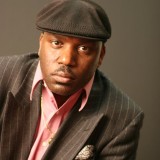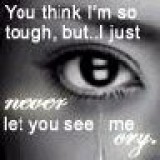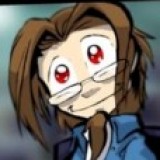Basic Elements of PoetryBasic Elements of Poetry :
-
Robert Gardiner
20 years agoTop 10 Key Elements of Poetry
With poetry, we put words together in a creative way to express an idea, emotion or image (or even to tell a story). Poetry is made up of different elements, each of which may or may not be used in a given poem. By becoming familiar with the elements of poetry, you'll be able to manipulate them more easily and improve your writing. Here's a quick rundown of 10 of the most basic elements of poetry, with links to more in-depth information.
1) Title
The title is the first thing a reader will see, so it's important to get it exactly right. With many poems, the title functions as the first line of the poem; with others, there is no actual title, so the poem is known by its first line (that line "becomes" the title, in effect). A good title can add depth to the poem, or help illuminate the meaning for the reader. A bad title can be too obvious, too revealing, or simply confusing. This small element deserves more thought than it usually gets.
More: The Title: What's It Good For, Anyway?
http://teenwriting.about.com/cs/generaltips/a/Titles.htm
2) Imagery
Almost every poem every written has imagery in it (as do fiction and non-fiction). Imagery is all the detail of the senses that make a poem come alive for the reader. It includes not only visual information (images), but also information from the other senses. Imagery can be used simply to write about a setting or event, such as a poem about the forest, or about a day at the beach. Imagery can also be used metaphorically, where the detail described refers to something else entirely.
More: What is Imagery?
http://teenwriting.about.com/cs/glossary/g/GlosImagery.htm
3) Plot
Did you think that only ficiton had plots? Well, poems have plots, too. The plot of a poem is the underlying idea or impulse that connects all the individual ideas or images together and arranges them in an effective way. A narrative poem, for example, uses plot in much the same way as fiction does, in order to tell a story. Other kinds of poems might have plots that pose and seek to answer questions, that contrast ideal images with reality, or that progress through images from blurry to sharp.
More: The Basic Plots of Poetry
http://teenwriting.about.com/library/weekly/aa041403c.htm
4) Diction
All creative writing is written in artificially constructed language; that is, poetry isn't the way we talk every day. The kind of language you choose for a poem, its range of vocabulary, is its diction. The words you choose--whether you use old-fashioned "poetic diction" or something that sounds like contemporary street slang--affects the impact you poem has. Think about what you want you poem to do, what you want it to say, when you choose your diction. As with many things, consistency is key.
More: Diction and Poetic Language
http://teenwriting.about.com/library/weekly/aa041403d.htm
5) Rhythm
All poetry has rhythm, from the strictest metered verse to the loosest free verse. The rhythm of poetry is like the beat of music, and if you have control over it, you have control over your writing. Rhythm is composed mainly of stress (in varying levels from none to a lot) and pauses. It is what influences how the words are read, rather than what the words are. Very often, fixing a line that doesn't quite work is a simple as examining its rhythm and seeing where it goes wrong.
More: Prosody: Rhythm and Metre
http://teenwriting.about.com/library/weekly/aa041403e.htm
6) Metre
We mostly think of metre as occurring in rhymed poetry, but even unrhymed poetry can be metered. Metre is specific patterns of rhythm, and many of those patterns have names. It can be a difficult element to work with, as too strict a metre can make a poem sound staccato and artificial (and even annoying). But mastering metre (or at least becoming aware of its possibilities) will give you an advantage even in your least structured work. It's all about how words sound together.
More: Poetic Metre
http://teenwriting.about.com/library/glossary/bldef-metre.htm
7) Repetition
Repetition emphasizes whatever it is that's repeated, but too much repetition can make a great word or phrase seem commonplace. It's a matter of balance or moderation. Repetition is another one of those elements that we usually think of in connection with strict forms of poetry, but which is also of great use in less structured poems, including free verse. There are many possibilities--one can repeat words, phrases or whole stanzas, and one can play with the location of repeated parts.
More: Repetition and Rhyme
http://teenwriting.about.com/library/weekly/aa041403f.htm
8) Rhyme
Here's one more element that seems to belong to poetry in strict forms, but which can be used in unstructured poems as well. You probably won't want to use rhyme very much in your free verse, but the odd pair of rhymed words can have interesting effects. Rhyme is a much more versatile element than we often assume--did you know that there are many different kinds of rhyme, each with a somewhat different sound? Not only can rhyme be useful, but it can also be a lot of fun to play with.
More: What's a Rhyme -- and What Isn't?
http://teenwriting.about.com/library/weekly/aa120902a.htm
9) Form
The form of a poem refers to the "rules" of metre, rhythm, rhyme and line length that determine a poem's shape. Form can be as loose as having no rules at all, or as strict as specifying a particular pattern of metre and rhythm, a specific rhyme scheme, and a certain number of syllables per line and lines per stanza (and more). Even if you plan to write mainly free verse, it's worth becoming familiar with forms. You can use parts of the "rules" for one or many forms and create something new.
More: Poetic Forms
http://teenwriting.about.com/library/weekly/aa041403h.htm
10) Art
"Art" is a concept that is difficult to define, but here I mean something like "the part of poetry writing that is not craft." By craft, I mean the techniques you learn to use to consciously make your writing better. Sort of. Art, then, is the unconscious, creative aspect of writing poetry, what I have elsewhere called "the heart of poetry." In some ways, it is the most important element of poetry, and it's one you either have or don't have. Craft you can learn, but art is innate.
More: Writing Where Your Heart Is: Art and Craft in Poetry
http://teenwriting.about.com/cs/writingpoetry/a/HeartOfPoetry.htm
From: http://teenwriting.about.com/od/writingpoetry/tp/ElementsPoetry.htm
Basic Elements of Poetry : Rhythm, Rhyme and Imagery:
Introduction
Poetry, unlike other literary forms, focuses most sharply on language itself. The music of words, how they sound, how their sounds flow and mix and form musical patterns are vital to poetry. Writer A.S. Rosenthal said, “Far from being incidental, qualities of sound and rhythm give a poetic work its organic body.†Poets must use all the physical attributes of words: their sound, size, shape, and rhythms.
Imagery
If the music of poetry is its life-blood, images give poetry its soul. Although you can write a successive poem without imagery, the best poems come alive with simile, metaphor, symbolism, and use of personification. Be alert to images in poems you read, and try to include some original imagery in your own poems. Keep in mind that imagery is the language of dreams. When you write with imagery you bring the magic and mystery of dreamscapes to your writing. As poet, William Greenway, said “images can communicate the unsayable, so show don’t tell.â€
Rhythm
Rhythm can be defined as the flow of stressed and unstressed syllables to create oral patterns. To achieve rhythm, English poets have traditionally counted three things:
1. the number of syllables in a line
2. the number of stressed or accented syllables
3. the number of individual units of both stressed and unstressed syllables.
Rhyme
According to Webster’s Dictionary, rhyme is “ a regular recurrence of corresponding sounds†which occurs usually at the end of a line. There are three main types of end-rhymes:
1. True rhyme (also called masculine) occurs exactly on one stressed syllable.
EX. car, far
2. Feminine rhyme uses words of more than one syllable and occurs when the accented syllable rhymes.
EX. buckle, knuckle
3. Off-rhyme or Slant Rhyme occurs when words sound very similar but do not correspond in sound exactly
EX. down, noon
From: http://www.bloomington.in.us/~dory/creative/class5.html
Additional Reference: http://www.electpress.com/loveandromance/page100.htm
Six Traits of Poetry Writing:
1. The Idea – the heart of your poem, point of your message
2. The Organization – the internal structure
3. The Voice – evidence of the writer behind the message
4. The Word Choice – the vocabulary or terminology used
5. The Fluency – the rhythm and flow - how it plays to the ear
6. The Form – the mechanical structure and correctness there of
I personally have always keyed in on Rhythm, Rhyme, and Flow. I believe having these three elements contribute greatly to a poems overall appeal and help to make for a well structured piece.
1. A poem should flow naturally - be flowing and easy reading
2. It should have rhythmic symmetry – there should be a correspondence rhythm with in the poem
3. Effective rhyming add to overall beauty and quality of poem – finding the correct corresponding rhyme makes for a better poem
The number one Key to writing poetry is how it’s constructed, structured, and how that structure lends itself to the appeal of a poem when being read!!! -
Sean Allen
20 years agoYou should consider submitting this as an article.
-
Steven Beesley
20 years agoRobert, do think about posting this under articles, that is a good idea as suggested by another writer.
You should also mention that rhyming is not used in all poetry as some poems do not rhyme at all. -
Dark Kitten
20 years agoI totally agree.
-
Robert Gardiner
20 years agoLearn some of the technical aspects of writing better poetry;
Writing Poetry: A Beginner’s Guide
http://teenwriting.about.com/library/weekly/aa041403a.htm




